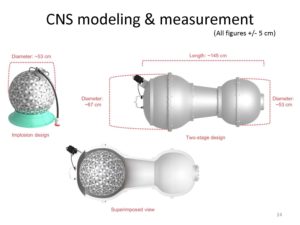October 30, 2019
North Korea has announced and carried out six nuclear weapon tests (in 2006, 2009, 2013, 2016, and 2017) which have ranged in estimated yield from less than 1 kiloton in 2006 to as much as 250 kilotons in 2017, and declared that it was closing and dismantling the Punggye-ri test site. What can be learned about the nuclear explosive devices designed and tested in North Korea?
 Senior Research Associate and Nonproliferation Review Editor Joshua H. Pollack spoke at Princeton University’s Program on Science and Global Security’s Brown Bag Seminar on October 23, 2019, about three distinct streams of evidence pertaining to the design of North Korea’s nuclear-weapon program: seismic and other observational data, insider accounts, and official North Korean statements. Comparing the three streams provides a largely consistent picture, that North Korea likely has four designs: three implosion devices, and one two-stage device. Still unknown are the DPRK’s choice of fissile material and its boosting capabilities.
Senior Research Associate and Nonproliferation Review Editor Joshua H. Pollack spoke at Princeton University’s Program on Science and Global Security’s Brown Bag Seminar on October 23, 2019, about three distinct streams of evidence pertaining to the design of North Korea’s nuclear-weapon program: seismic and other observational data, insider accounts, and official North Korean statements. Comparing the three streams provides a largely consistent picture, that North Korea likely has four designs: three implosion devices, and one two-stage device. Still unknown are the DPRK’s choice of fissile material and its boosting capabilities.
The Program on Science and Global Security, based in the Woodrow Wilson School of Public and International Affairs, conducts scientific, technical and policy research, analysis and outreach to advance national and international policies for a safer and more peaceful world. Throughout its history, SGS has worked on nuclear arms control, nonproliferation, and disarmament to reduce the dangers from nuclear weapons and nuclear power. In the past decade it also has advanced policy on biosecurity issues. SGS engages effectively and creatively with these long-standing policy issues that remain to resolved and tracks emerging challenges from disruptive technologies with the potential to transform global security. These include new biotechnologies, information and communications technologies, autonomous weapons, artificial intelligence, and space-based systems.
Before joining MIIS in April 2016, Pollack served as a consultant to the US government, specializing in issues related to weapons of mass destruction, including proliferation, arms control, and deterrence. As a defense policy analyst at DFI International, Science Applications International Corporation, and Constellation West, his clients included the Defense Threat Reduction Agency, the Office of the Under Secretary of Defense for Policy, the Department of Homeland Security, the National Nuclear Security Administration, and the Plans and Policy Directorate (J5) of U.S. Strategic Command. In 2015, he was named an Associate Fellow of the Royal United Services Institute. Pollack is a frequent commentator in major media outlets, including CNN, the Washington Post, the New York Daily News, Reuters, Vox, Asia Times, Voice of America, NPR, and others.
